The holy grail for most food bloggers is to score a publishing deal and have their recipes in print. But what does it take to achieve this, and what is it actually like to go through the process?
We caught up with Food Writer and Callia Web client Ren Behan to find out about her new cookbook Wild Honey & Rye, and just what it took to snag such an amazing achievement.
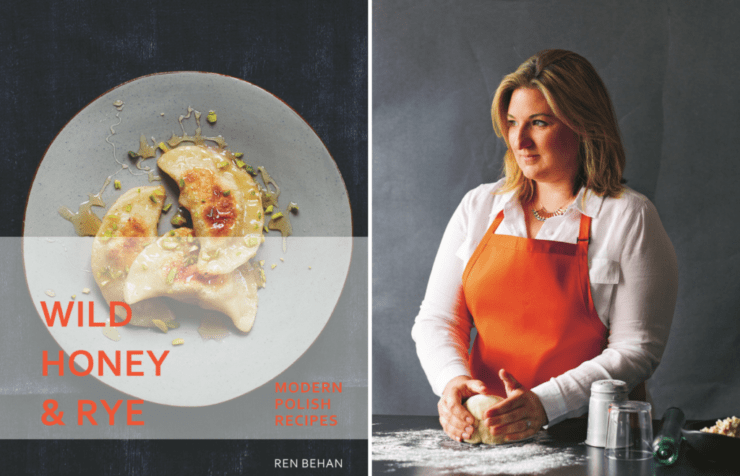
Your new book was released in September – how have people responded to it?
Yes, Wild Honey and Rye came out just a few weeks ago and I have been overwhelmed by the positive response to the book. Lots of people have said that they have been quite surprised by the seasonality and lightness of Polish food, which is perhaps different to what they expected Polish food to be like. They have also been enjoying the modern photography and clean design of the book (thanks to the amazing team at Pavilion Books) as well as the recipes, stories and travel photos of Poland within the book.
When did you first come up with the concept?
I had wanted to write a cookery book for a while, although with three youngsters (and plans to renovate our home) it was quite tricky to find the time. I was born to Polish parents and was always very interested in sharing my Polish heritage and recipes, though my blog and other food writing work was always quite varied and based more on seasonal food and family-friendly cooking. In 2015, I visited Poland again with some friends and found that the food scene in Poland had completely changed. I was inspired then to try and capture the Polish food scene as it is today – highlighting the fresh ingredients used, as well as introducing people to some of the commonly available Polish ingredients we can find in the shops today.
How long has it taken you to get a publishing deal? Can you tell us a bit about that journey?
As a member of the Guild of Food Writers, I went along to their annual awards ceremony in 2015. I had also judged one of the categories that year. I got chatting to a literary agent called Heather Holden-Brown, mentioning my Polish heritage and love of Polish food to her and she said that my stories sounded very interesting. She signed me up that week and I spent the summer working on my proposal.
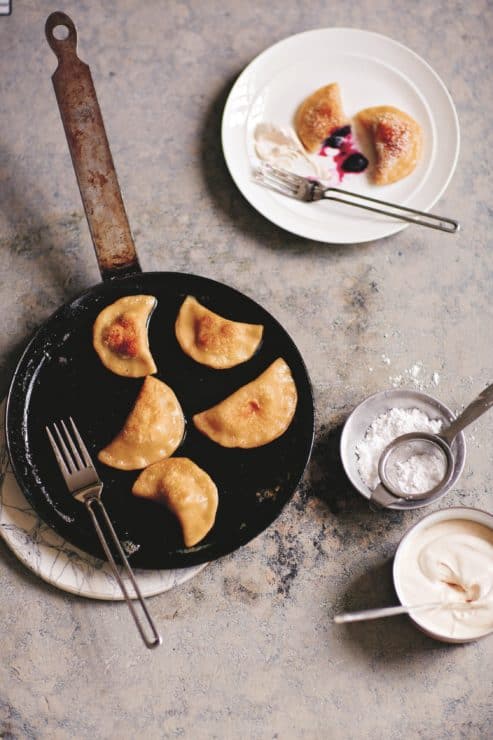
How do you write a good book pitch?
Writing a strong proposal is key to getting people interested in your book ideas, so I spent a good deal of time on mine, fine-tuning it and adding things that I thought were relevant. Whereas a typical pitch for recipe work might be a few paragraphs, my book proposal ended up being a good 50 pages long and some I hear are even longer, but it’s really worth articulating your ideas so that publishers can get a good sense of what you intend to write about.
A good proposal should include a strong introduction, explaining your background and why you want to write the book, as well as an outline of what your book will include, including recipe lists and a sample chapter.
It’s also a good idea to include information on your platform (where you currently write and how you connect with people) and on your intended audience – think about who you are writing your book for, who would buy it and how it would help them or inform them.
In my proposal, I highlighted examples of other titles in a similar genre (and I began keeping a close eye on upcoming titles as far as possible too) and I explained how they complimented my proposed book, as well as how we would compete or sit on the shelves together. I found that it was important to highlight a point (or points) of difference.
With Polish food specifically, I explained in my proposal that there was a growing interest in ‘lesser-known cuisines,’ but I was also able to demonstrate knowledge of my subject because I had been eating Polish food all my life and I had travelled lots to Poland over the years. So, I explained how Polish food interested me and how I intended on making it interesting to other people. It’s not enough to say that you want to write a book – you have to be specific and show that you have an idea that will (hopefully) strike a chord with your intended audience.
Do you need a literary agent? What do they do?
I have found my literary agent, Heather, to be invaluable. Firstly, in giving me advice about writing a Polish book in the first place, but also in introducing me to publishers she felt would be a good fit for my book. An agent can go along to meetings with you and following any meetings with publishers, a good agent will follow up and ask for feedback and then usually pass it back onto you.
A literary agent will also help with advising on what level of advance you might get, as well as with the finer points of negotiating the contract – how long you’ll get to write the book and how it will be distributed, for example.
They think of questions you might not think of asking and also act as a go-between if you have questions before you get settled into writing. During the book process, your agent can also go with you to any meetings about the book (usually this is with your commissioning editor and later on with your publicity team) and then as the excitement to publication builds, your agent can be on hand if any questions or issues arise.
What happens after you land a book deal?
I was quite surprised by the actual order of events and assumed that landing a book deal would mean receiving a contract, signing it and then settling into a period of writing. But in fact, having accepted an offer and knowing that I didn’t have a lot of time between then and the submission date, I immediately got onto recipe testing and writing, which was a good thing because the actual contract arrived by post a good deal later!
I didn’t have very long to get the whole manuscript in (around 3 months) although quite a few of my recipes were already written or were easy to collate because I had been asking my mum for them, or jotting things down on my travels. However, even with a recipe book, there are quite a lot of other bits, such as the main introduction to the book and chapter introductions, headnotes and acknowledgements.
I also thought it would be a good idea to include a glossary of Polish ingredients, which later became The Polish Pantry section at the beginning so that took a bit of time, too. After submission, the manuscript goes to a copy editor, who works with you to iron out anything that isn’t clear, or that could be better explained.
Usually, a period of book shoots will get booked in – mine took place during two days over a couple of months, so around 6 days in total, as it was a bit tricky to get everyone together for a whole week period. After that, the book gets designed and you get to see the first layouts before it goes to print. In total, the process for me between the first meeting and the publication date took close to two years.
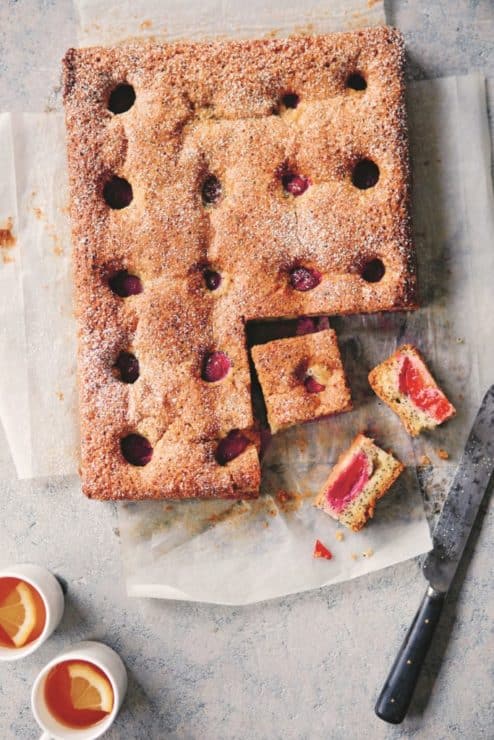
What was the photo shoot like? How involved were you?
I loved the shoot days and went along to all of mine. Generally, as an author, you go along to shoot days if you can, but the actual shoot itself is guided by the publishers, your photographer, home economist and prop stylist, so you do tend to take a bit of a back seat – unless you have specifically said that you want to be more involved.
Watching my recipes come to life was exciting, though a bit strange as I had previously been used to doing all the bits myself, although I relished the opportunity of watching what was happening and was keen to see how the recipes looked and how the images were styled. Once the recipes had been cooked and shot, we got to eat them for lunch or a late afternoon snack! This was the fun part.
How much input do you get with the look and feel?
I suppose before the shoot days were booked in, the publishers had a good idea of how the finished book would look and feel and I think we were all keen for my book to have a contemporary, modern feel. This means that on shoot days, everything has already been decided.
The prop stylist generally goes ‘prop shopping’ ahead of the shoot day and brings things along that they think will reflect the style of the book – which includes everything from backgrounds, to plates, dishes, cups and any extra details.
I found the whole thing to be a highly organised affair and I was particularly taken about by the level of attention to detail on each shot. I also took a trip to Poland and submitted some of the photos I had taken to the publishers and was delighted that they were included, too because I think (and hope) that they add something to the book on a personal level.
How do you feel about the finished product?
I think I was generally just very excited all the way through! I looked at every step as bringing me a step closer to seeing my finished book. Having seen the quality of other titles published by Pavilion Books, I just had great faith that my book would be beautiful too.
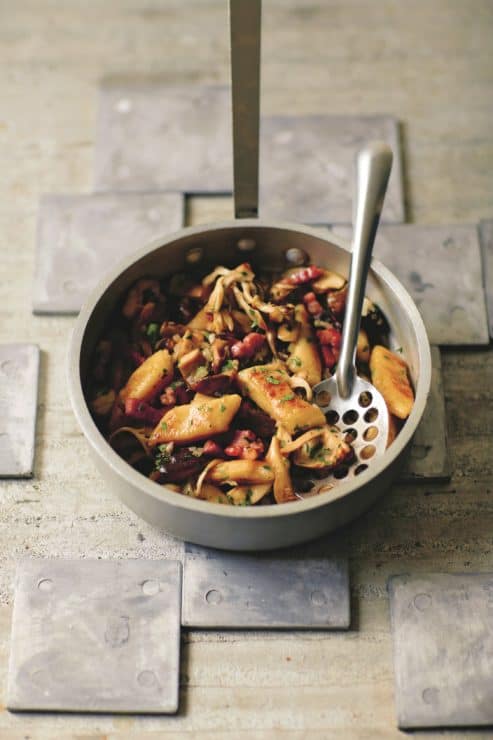
How does it feel to be a published author?
It feels like a dream come true. I realise that I have been incredibly lucky in both finding such a supportive agent in Heather but also in signing with Pavilion Books who I think are very forward-thinking. I’m happy to say that I wouldn’t have done anything differently and I feel very priviledged to have been able to share my love of Polish food with a wider audience.
How did you celebrate the launch of the book?
On the day itself, I celebrated at home with family and friends, cooking up some of the recipes from the book and drinking a fair bit of champagne and maybe a bit of vodka. Over the weekend, my family came to visit from Cheshire and we carried on celebrating.
Then a week later I hosted a little gathering at one of my favourite restaurants called Baltic, again, to mark the occasion but also to say thank you to those who had supported me throughout. I also did my first book-themed supper club, a live demo and a few book signings. The celebrations continue!
Ren’s Book Wild Honey & Rye, Modern Polish Recipes (affiliate link) is out now published by Pavilion Books priced at £20

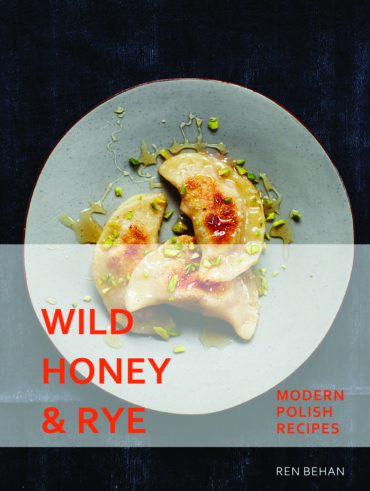
 5 fantastic food blog designs we love
5 fantastic food blog designs we love
Leave a Reply